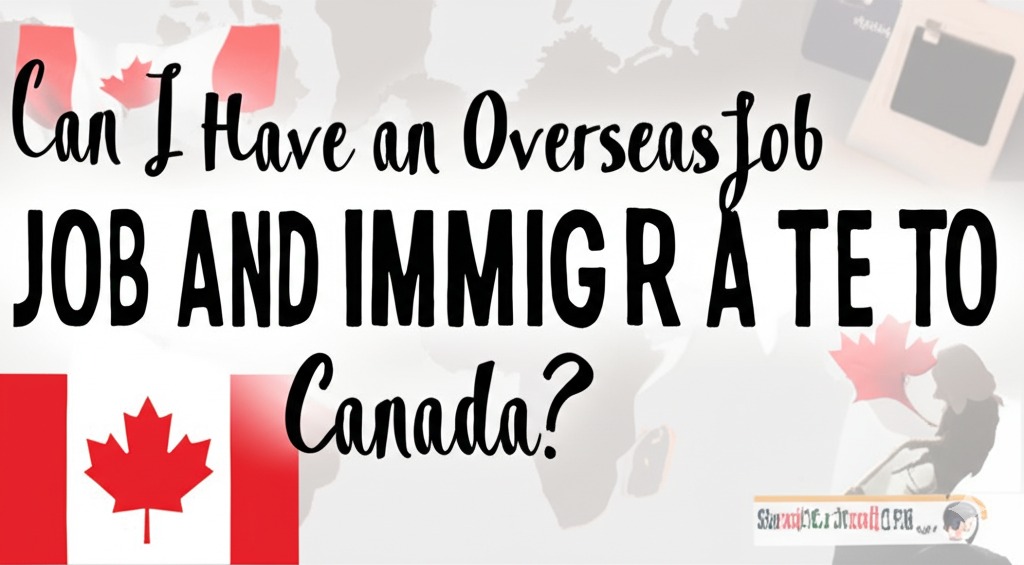
Dreaming of building a new life in Canada while working for an overseas employer? You’re not alone. With its high quality of life, thriving economy, and multicultural communities, Canada continues to attract skilled professionals from around the globe. But what if you’re already working remotely for a company based outside of Canada? Can you still immigrate to Canada while keeping your overseas job?
The short answer is: Yes—but it depends on your immigration pathway, job type, and how you plan to support yourself. Let’s break it all down and explore your options.
Why People Want to Immigrate to Canada While Working Overseas
Remote work has opened new doors for global professionals. Here’s why many are considering immigration to Canada while keeping their overseas roles:
- Quality of life: Universal healthcare, safety, and a strong education system.
- Flexible immigration pathways: Canada offers multiple immigration options for skilled workers.
- Remote work freedom: Many professionals now work online for companies in the U.S., Europe, or Asia.
- Tax and residency planning: Some want to live in Canada but continue earning foreign income.
Let’s explore how you can make that move while maintaining your current remote job.
Can You Keep an Overseas Job and Still Immigrate?
Yes, But You Need to Meet Canadian Immigration Requirements
Immigration to Canada doesn’t require a job offer from a Canadian employer. Several programs are based on factors like:
- Education
- Work experience
- Language skills
- Age
- Adaptability
Programs like Express Entry, Provincial Nominee Programs (PNPs), and Start-Up Visa do not mandate Canadian employment. You can apply based on your skills and proof of funds, even if you’re employed abroad.
Top Immigration Pathways for Remote Workers
1. Express Entry System
Canada’s most popular immigration route for skilled workers.
- No Canadian job offer needed (though it boosts your score).
- Based on a Comprehensive Ranking System (CRS).
- You’ll need:
- A language test (IELTS/CELPIP)
- An Educational Credential Assessment (ECA)
- Proof of at least one year of skilled work experience
✅ Tip: Remote work counts if your role aligns with a recognized NOC (National Occupation Classification) and you can prove employment duties and pay.
2. Provincial Nominee Programs (PNPs)
Each Canadian province has its own immigration needs. Some may favor tech workers, health professionals, or tradespeople.
- Some PNPs accept applicants without job offers.
- Remote workers can qualify if their skills match in-demand roles.
🔍 Research provinces like Ontario, British Columbia, and Alberta, which often seek skilled international workers.
3. Start-Up Visa
Got an innovative business idea? Canada may welcome you as an entrepreneur.
- You can stay employed overseas while setting up your business in Canada.
- You’ll need:
- Support from a designated organization
- A viable business plan
- Adequate settlement funds
What About Working Remotely While in Canada?
Yes, You Can Work Remotely for a Foreign Employer in Canada
Once you’re a permanent resident, you’re free to work for any employer—including those overseas.
However, keep in mind:
- Taxation: Canadian residents must report worldwide income to the CRA.
- Immigration status: If you’re on a visitor visa, working (even remotely) may violate conditions.
- Legal setup: Your foreign employer may need to adjust your employment status or tax withholdings.
✅ Pro tip: Speak to an immigration consultant or tax advisor to stay compliant.
Key Considerations Before Moving
📋 Checklist for Aspiring Immigrants with Overseas Jobs
- ✅ Choose the right immigration program
- ✅ Prove your remote work meets NOC criteria
- ✅ Prepare language and education documents
- ✅ Show proof of funds for settlement
- ✅ Understand Canadian tax obligations
- ✅ Consider your long-term career and residency goals
Common Myths About Immigration and Remote Work
❌ You must have a Canadian job to immigrate
➡️ Not true. Many pathways don’t require it.
❌ Remote work isn’t counted as experience
➡️ As long as it meets the criteria for skilled work, it can qualify.
❌ You can’t live in Canada and work for a foreign company
➡️ You can—just make sure you’re compliant with immigration and tax laws.
Final Thoughts: Is It Right for You?
Yes, you can keep your overseas job and immigrate to Canada—if you choose the right path and prepare carefully. Remote workers bring valuable skills and global experience, and Canada is increasingly open to modern work models.

Andre Cuevas provides career insights, job search strategies, and professional advice to help individuals navigate the job market and achieve their career goals.






